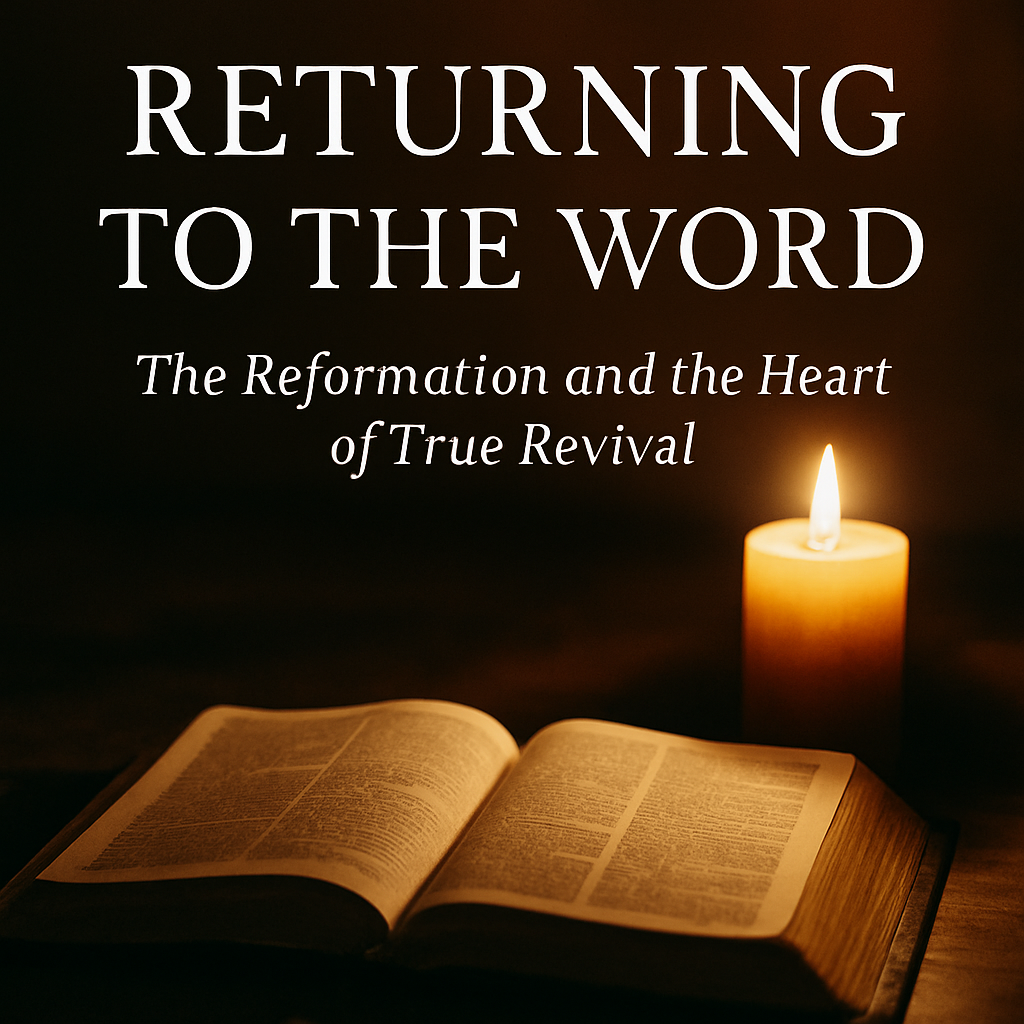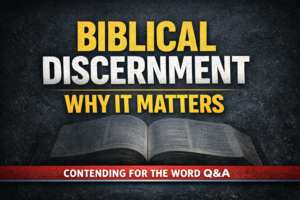⏱️ Estimated Reading Time: 4 min read
Contending for the Word Q&A · November 15, 2025
Theme: The Reformers and True Renewal
Returning to the Word, The Reformation and the Heart of True Revival
The story of revival cannot be told without looking back to one of the most transformative periods in church history, the Protestant Reformation. In the sixteenth century, this movement was not merely a political or theological shift, it was a spiritual renewal centered on restoring God’s Word and the gospel to their rightful place in the life of the church.
Leaders such as Martin Luther, John Calvin, and Ulrich Zwingli called the church back to the foundations of salvation by grace alone, through faith alone, in Christ alone. The Reformers recognized that the church had drifted from biblical truth, leaning on tradition, ritual, and human authority. At the heart of their work was a deep conviction that Scripture alone is the final authority for faith and life.
When Martin Luther posted his Ninety Five Theses in 1517, his aim was not to divide the church, but to call it to repentance and renewal through the Word of God. Luther said, “The Bible is the cradle wherein Christ is laid.” This captures the Reformation’s revival, a rediscovery of the gospel through a return to Scripture. The principle of sola scriptura, Scripture alone, became the cornerstone of genuine renewal and corrected long standing doctrinal confusion.
John Calvin advanced this renewal by emphasizing God’s sovereignty, the centrality of biblical preaching, and the authority of Scripture in every area of life. His work in Geneva modeled faithful church reform rooted in sound doctrine. Calvin’s Institutes of the Christian Religion equipped believers to understand and defend the gospel with clarity and conviction.
The Reformation was not only about theological precision, it was about spiritual life. True revival begins with renewed devotion to God’s Word. The Reformers understood that revival comes when believers rediscover the truth of Scripture and are transformed by it. Their movement was not built on emotionalism or novelty, it rested on the enduring power of the gospel.
One of the Reformation’s greatest recoveries was the doctrine of justification by faith. For generations, many were taught that salvation depended on faith plus works. The Reformers returned to texts such as Romans 3:28, “For we maintain that a person is justified by faith apart from the works of the law,” and proclaimed that salvation is a gift of grace received through faith in Christ alone. This was not innovation, it was restoration.
Preaching stood at the center of this renewal. Luther and Calvin believed that faithful exposition of Scripture is the means God uses to bring spiritual life to His people. Romans 10:17 reminds us, “Faith comes from hearing the message, and the message is heard through the word about Christ.” When the church returns to the clear preaching of the Word, personal and corporate renewal follows.
A Call to Return to the Word
As we reflect on the legacy of the Reformation, we should ask, “Are we still rooted in the truth of God’s Word? Is the gospel central to our worship, our teaching, and our daily lives?” Revival begins not with trends or personalities, but with renewed submission to the authority of Scripture and the sufficiency of the gospel.
In our generation the temptation to drift is strong. We are often drawn to methods or philosophies that appear helpful, yet lack biblical substance. We should ask, “Have we replaced the power of God’s Word with human wisdom?” If so, let us return to Scripture, stand firm in the gospel of grace, and seek the Lord who revives His people by His Word and Spirit.
Prayer and Reflection
Pray that God would raise up believers and churches that cling to the sufficiency of Scripture. Ask the Lord to renew our hearts with boldness, faith, and love for His truth. May He revive His church today through the faithful preaching of His Word, so that Christ alone is exalted and His gospel advances to the ends of the earth.
For more from Contending for the Word Q&A please visit our page at Servants of Grace or at our YouTube.
Dave Jenkins is happily married to his wife, Sarah, and lives in beautiful Southern Oregon. He is a writer, editor, and speaker who loves Christ, His people, the Church, and sound theology.
Dave serves as the Executive Director of Servants of Grace Ministries and the Executive Editor of Theology for Life Magazine. He is the Host and Producer of the Equipping You in Grace Podcast and a contributor to and producer of Contending for the Word.
He is the author of The Word Explored: The Problem of Biblical Illiteracy and What To Do About It (House to House, 2021), The Word Matters: Defending Biblical Authority Against the Spirit of the Age (G3 Press, 2022), and Contentment: The Journey of a Lifetime (Theology for Life, 2024).
You can connect with Dave on Facebook, X (Twitter), Instagram, YouTube, or subscribe to his newsletter.
When he is not engaged in ministry work, Dave enjoys spending time with his wife, going to movies, sharing a meal at a favorite restaurant, or playing a round of golf with friends. He is also a voracious reader, particularly of Reformed theology and the Puritans, and is often found working through a stack of new books from a wide range of Christian publishers.
Dave earned his M.A.R. and M.Div. from Liberty Baptist Theological Seminary.




